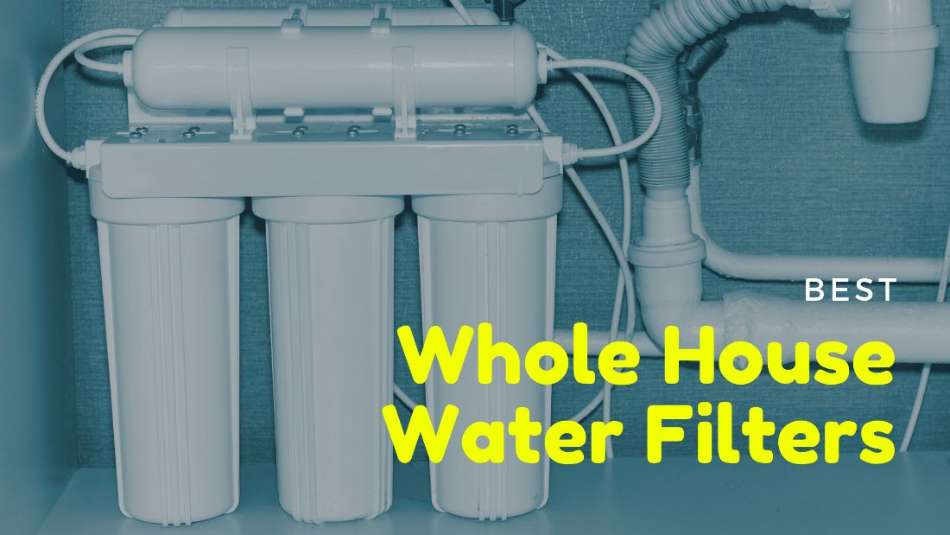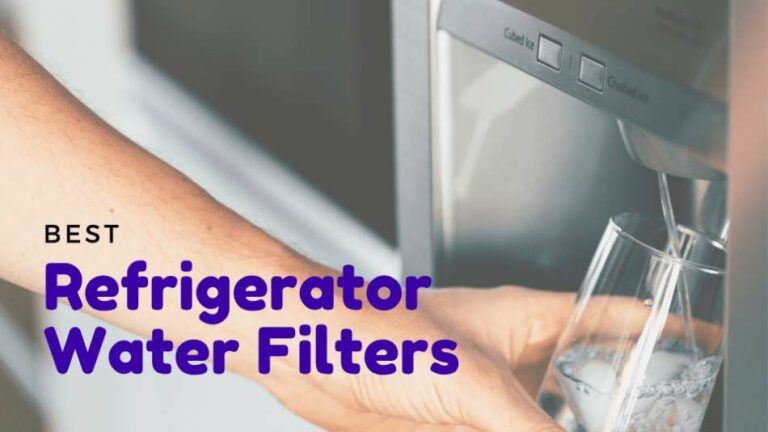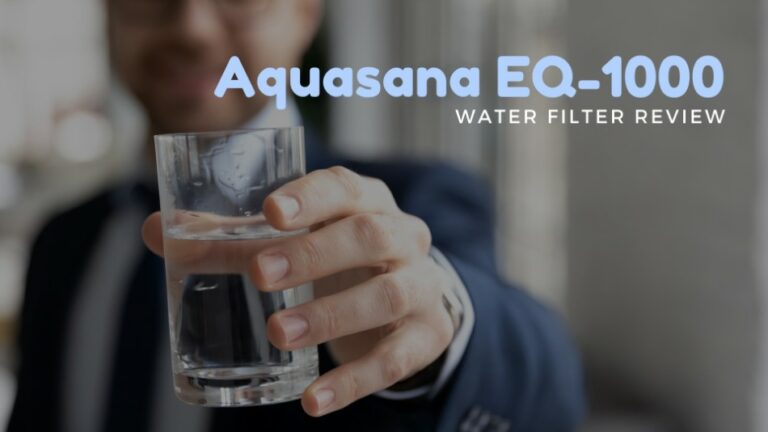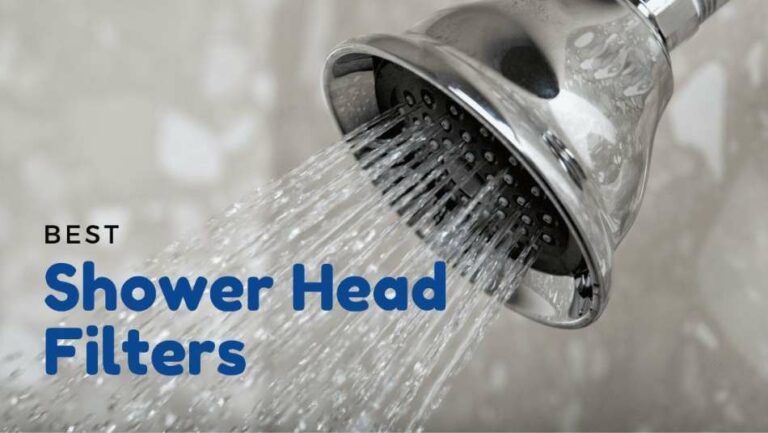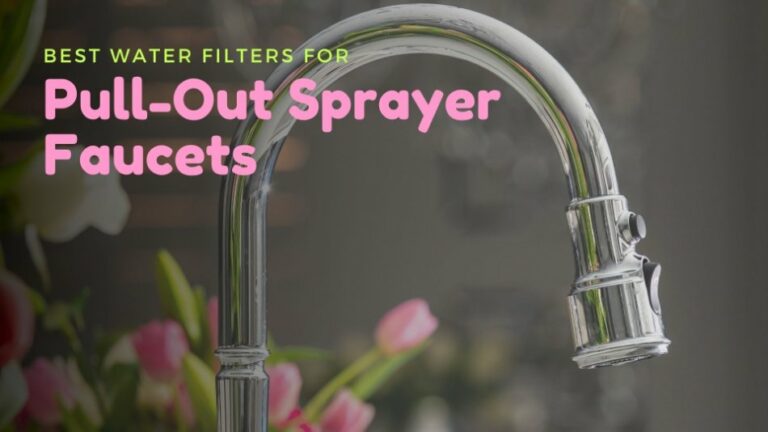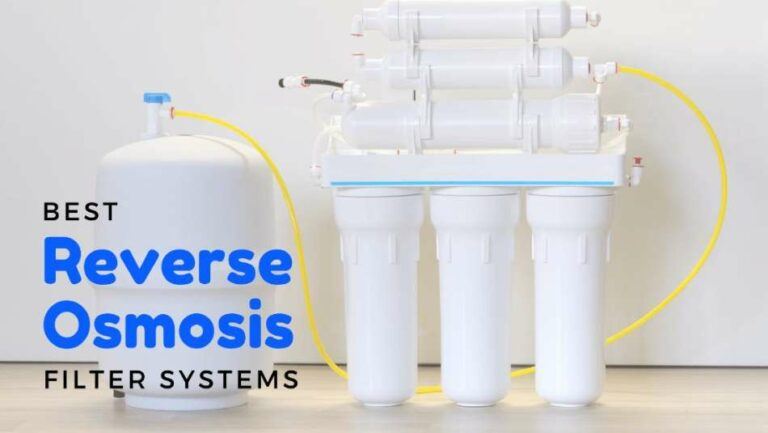Best Whole House Water Filters (with Reviews)
Did you know that the average person will consume around 22,190 gallons of water over the course of their lives? Well, what if this life essence contains various harmful pollutants swimming around just waiting for you to drink up? Not much of a fun fact now is it?
Luckily, it seems that people are realizing how contaminated tap water actually is, whether it’s from a well or municipal, and are deciding to take a stand!
Since you’re here, then you probably decided to join the clean water club too! which is why using a whole house water filter should be at the very top of your to-do list.
What’s that you ask?
To put it simply, a whole house water filter is a system that basically purifies all the water entering your household to deliver clean filtered water out of every faucet you open wherever it may be; the kitchen, shower, or garden, you name it! This system also goes by the name POE (Point Of Entry) systems because they’re placed just before the water reaches your home.
Obviously, if you’re on the hunt for a whole house water filter, you don’t really wanna get overwhelmed with all the different models and brands out there. That’s why we’re here to help you avoid all the hassle and guide you through this process with a carefully put together list of the absolute best whole house water filters available on the market. So, let’s get started!
Top 5 Whole House Water Filters
As an Amazon Associate we earn from qualifying purchases.
Last update on 2026-02-25 at 17:15 / Affiliate links / Images from Amazon Product Advertising API
1. Aquasana 10-Year Whole House Water Filter
Last update on 2026-02-25 at 17:15 / Affiliate links / Images from Amazon Product Advertising API
Read the full Aquasana water filter review.
Kicking things off with the Aquasana water filter, a reliable system that offers top-notch protection as it removes up to 97% of chlorine for 1,000,000 water gallons, surpassing NSF standards.
Such capacity also means that this whole house filter is here to stay really long, 10 years or more. It comes with a pro installation kit that many customers consider to be a blessing. This kit includes everything you will need to set it up, from a pre and post filter, to brass fittings, supports, and shut-off valves.
The micron rate is the star of the show with this filter, at 0.35 microns, you’re guaranteed water free from even the smallest particles. It even alkalinizes the PH level of water making it healthier, something rare in whole house systems.
Granted, the initial cost of the Aquasana whole house filter may be quite high, however, its longevity plus the cheaper replacement filters, makes it a solid option to consider.
Pros
- 35-micron rating
- 1,000,000 capacity
- Comes with Pro Kit
- Improves water PH
- Gets rid of 97% of chlorine
- 10-year warranty
Cons
- Pretty expensive
- Needs a PEX crimper to install
- Not all that fitting for well water high in heavy metals
- A flow rate of 7 gallons per minute may not work for larger houses
2. iSpring WGB32B 3-stage Whole House Filtration System
Last update on 2026-02-25 at 17:15 / Affiliate links / Images from Amazon Product Advertising API
Another great candidate is the iSpring whole house filter with its NSF certified removal of 95% of contaminants in water including chlorine, pesticides and so on. This impressive performance is thanks to its 5 microns rating.
The capacity provided by this carbon filter is 100,000 gallons, which means you’ll be enjoying healthy clean water for about 1 or 2 years.
The flow rate of 15 gallons per minute is also admirable and is great for heavy simultaneous usage. No pressure drops here!
Along with a 3-stage mighty filtration power and a decent price, the iSpring whole house water filter can be exactly what you’re looking for.
Pros
- Doesn’t require a professional to install
- 3 filtration stages
- 15 gallons per minute flow rate
- 95% removal of contaminants
- Suits both municipal and well water
- 1-year money back guarantee
Cons
- Might leak if you don’t use Teflon tape
- Installation can be quite tricky
3. Home Master Whole House 3-stage Filtration System
Last update on 2026-02-25 at 17:15 / Affiliate links / Images from Amazon Product Advertising API
One of the very popular whole house water filters is the Home Master whole house filtration system. With its 15 gallons per min filtration capacity, it produces a nice steady pressure for your everyday use.
It’s also pretty efficient as it has the ability to block out any sediment or material larger than 1 micron resulting in crisp healthy water. The 3 stages of water filtration add that extra boost of water treatment for even better water quality.
The filters used in the Home Master are jumbo-sized, this benefits you in two ways, the first is that more water can pass through which means faster flow, and the second is that they’re long-lasting. They do, however, cost a bit more but you the freedom to go with another 3rd party filter.
All in all, Home Master has done it again with an impeccable whole house water filter that gives you lots of value for your hard-earned money.
Pros
- Effective filtration of up to 95% of pollutants
- 3 stages of filtration
- Jumbo sized filters
- 2-year warranty
- 1-micron rating
Cons
- Replacement filters are comparatively expensive
- Jumbo-sized filters won’t fit any house
- Cleans out about 90% of iron, which isn’t sufficient for some users
4. Culligan WH-HD200-C Heavy Duty Whole House Filtration System
Last update on 2026-02-25 at 17:15 / Affiliate links / Images from Amazon Product Advertising API
Moving on with the Culligan heavy duty whole house water filter, the go-to system when we talk affordability. This filter offers adequate protection against sediment, sand, and scale, keeping your appliances in good shape and your water delicious.
The container itself is transparent so you can check the cartridge state in a mere look. With a capacity of 24,000 gallons maximum and a flow rate of 10 gallons per minute, it may not be the biggest or the fastest, but it can certainly be all you ask for if your house consumption is low or you’re tight on the budget. It also features a bypass valve to avoid the inconvenience of cutting your house off the water whenever you wanna change filters.
Although the replacement cartridges are super cheap, this filter is compatible with 5 different filter cartridges of all sorts of pore sizes and capacity. This means that, overall, the cost depends on what you need and purchase.
Pros
- 5-way filter compatibility
- See-through tank
- Ultra-affordable
- Built-in bypass valve
- Numerous safety certifications
Cons
- Low flow rate and capacity
- Inlet and outlet ports are prone to leakage, use extra Teflon tape
- The bypass valve isn’t a smooth ride and requires lubrication
5. 3M Aqua-Pure Whole House Filtration System
Last update on 2026-02-25 at 17:15 / Affiliate links / Images from Amazon Product Advertising API
Finishing things off with a crowd pleaser, none other than the 3M Aqua-Pure whole house water filter. Blocking out chlorine, dust, rust, and dirt or simply anything bigger than 5 microns, you end up with really fresh clear water. But if your water is very polluted, installing a pre-filter is recommended.
This filter also proves to be seriously low maintenance with its ability to stand strong for one year or more on average, so you only have to change filters yearly or every 100,000 gallons, the filter’s capacity. The replacement itself is remarkably easy, just a twist-off twist-on situation.
However, the real deal with the 3M Aqua-Pure filter is the outstanding flow rate of 20 gallons per minute, the highest on the list. This huge filtration capability is ideal for large houses where lots of faucets are in use.
Pros
- Superb 20 gallons per minute filtration rate
- Very low maintenance
- Quick easy to replace filters
- Perfect for city water
Cons
- Small contaminants such as heavy metals and pesticides will escape it
- Sediment pre-filter is needed for highly polluted water
Do I Really Need A Whole House Filter?
The need for a whole house filter relates directly to the quality of water you’re receiving. It doesn’t matter if it’s well water or municipal, it definitely contains something that comprises its quality and it absolutely can be improved.
One way to know for sure is testing your water with a home test kit and studying the results closely for one, or more, of the following:
- Chlorine or Fluoride
- Heavy metals such as lead
- High bacterial count
You can also use your senses to observe if your water is turbid or has particles floating.
If you notice any of these situations happening, then you should seriously start using a whole house water filter.
Why Should I Install A Whole House Water Filter?
Well, to answer why, you just gotta know how badly pollutants affect you and everyone in your home.
You may already know Chlorine, for example, being one of the most popular disinfectants used to treat water. You could even find dechlorinated water strange tasting because you’re that much used to it. However, studies tie it with a high risk of bladder cancer.
Fluoride also has a harmful effect as it’s actually linked to bone cancer, and not that many filters have the ability to get rid of it.
Such chemicals, additionally, can really damage your skin and hair with how much they’re exposed to them on the daily. A water filter can grant you the healthier skin and hair you strive for.
Well-sourced water especially is loaded with agricultural wastes, from fertilizers, pesticides, and herbicides, all the way to bacteria and microorganisms that could very well cause diseases.
Lead as an example of heavy metals, is extremely toxic, or even lethal if its percentage exceeds a very specific limit.
On a brighter side, whole house water filters are more eco-friendly as you’ll be cutting down on plastic water bottles. It will also result in less plumbing issues while giving you safe better tasting water.
What Type Of Whole House Filter Do I Want?
There are a number of factors that you must consider before purchasing a whole house water filter to avoid getting all confused and choose the best possible option for you.
Water Flow Rate
The flow rate directly translates into how much water is filtered through per minute, and consequently the amount delivered to your house faucets. You want a filter that maintains a constant water pressure if let’s say you’re using the shower while someone is washing the dishes.
That’s why you want to pay attention to the water volume your household outlets normally demands at the same time, for example, at mornings when school and work routines take place.
On average, a 10 to 15 gallons per minute flow rate is enough to sustain a common sized house. Larger houses, however, won’t be satisfied with such a rate and in this case, you gotta go with a higher more suitable flow rate.
Filters types and durability
Most typical whole house filters can remove basic contaminants such as chlorine, sediment particles, and materials responsible for foul smell or taste. But there are more specialized models that can take out heavy metals like lead, magnesium, and iron.
You may also encounter reverse osmosis systems that are the holy grail of whole house water filters. They can get rid of almost 100% of all the undesirable chemicals and pollutants making water completely clean and safe to drink and use in any aspect. The downside here is the rather hefty price tag.
While reverse osmosis systems are well worth the pay, some of us just can’t afford it. Which is why smaller units are available as an alternative that you can install under your kitchen sink. But it will provide pure water for a single tap only, a point targeting filter or so to speak.
All previous types can go under the grand title of replaceable cartridge type filters, meaning that you can customize and combine different filters according to your water problems and work best with well water and water containing sediment.
The other major filter type is carbon tank systems which are incredibly durable, require low maintenance, and are most suitable for city water supplies and water that contains suspended particles.
Microns
The true measure of a filter’s efficiency is its micron rating. A micron itself is a very small unit that expresses particle size. If a filter has a pore size of 1 micron, this means that it will block out any particle bigger than that preventing it from entering your house water.
Obviously, the lower the micron rating the purer the water, but the dilemma lying here is that the flow rate will also decrease. Generally, whole house filters offer around 1 to 5 microns while reverse osmosis systems go as small as 0.0001 microns.
It’s important to know that this micron rating doesn’t apply to carbon filters as they work via absorption and adsorption.
Cost and Consumption
Both cost and consumption go hand in hand when it comes to whole house water filters. While it might seem like a good idea to buy a cheaper system, if your house consumes lots of water, you’re gonna need to replace filters multiple times which will cost you more on the long run. And if you don’t use that much water, it’s possible for the filter to get clogged up and you’ll end up with a job done poorly.
That’s why you have to consider your house consumption not just the initial cost of your filter. A filter with higher capacity will last longer and is gonna be more expensive, but at least you won’t have to change filters as often.
Balancing your consumption with the filter’s lifespan is the key to a smart money saving choice.
Space
By now, chances are that you already figured that whole house filtration systems are way bigger than the average units. So, you’d be wise to make sure you have enough room to accommodate such a size.
To Wrap it Up…
For me, the Aquasana whole house water filter takes this one home. With its gigantic capacity and amazing filtration efficiency, I know it will back me up for an insane amount of time. However, if you’re looking for a more affordable but still powerful filtration, the 3M Aqua Pure or the Culligan heavy duty filters should do the trick.

